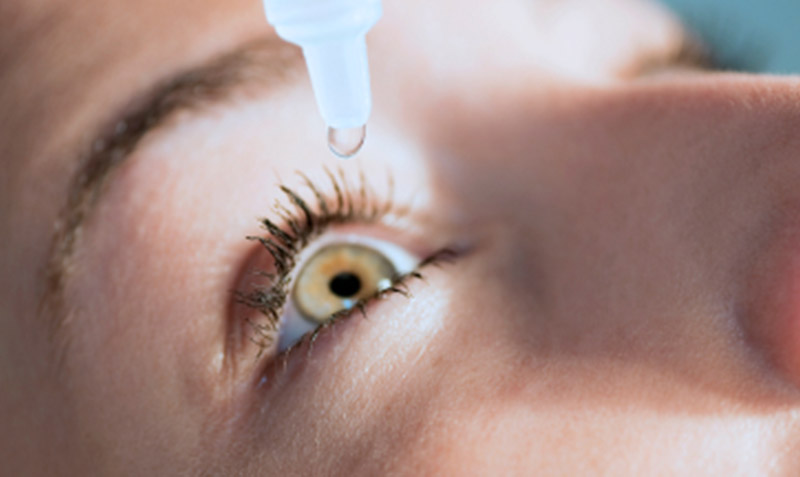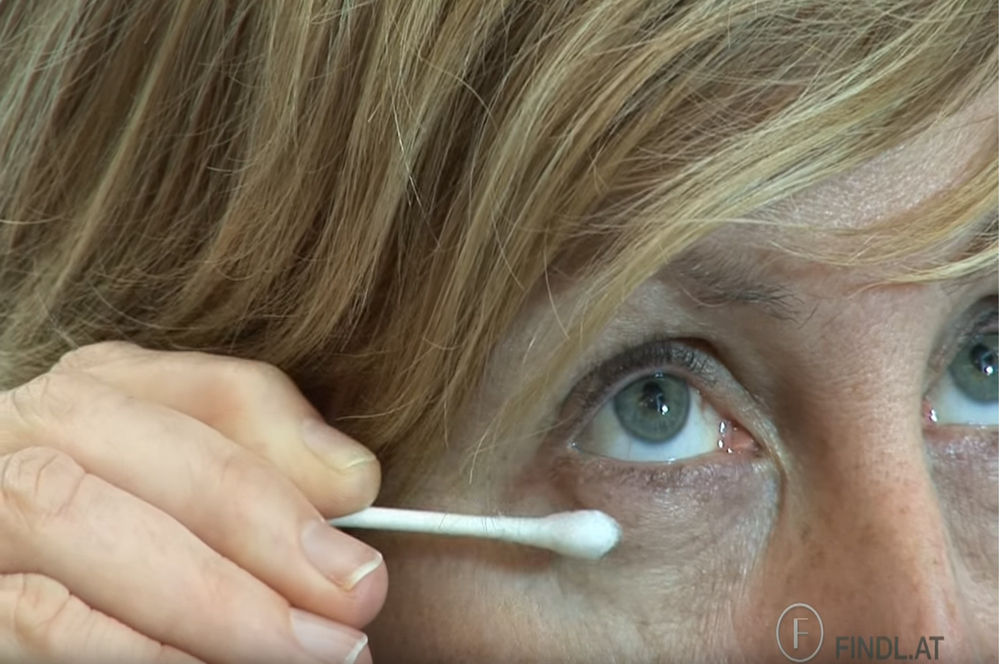The dry eye syndrome (Keratoconjunctivitis sicca) is an eye disease caused by decreased tear production or increased tear film evaporation. Either the amount of natural tear film is not sufficient, or the mixture of its components is not correct. Keratoconjunctivitis sicca is one of the most common eye problems.
Diseases
Dry Eye
Dry Ey (Sicca-syndrom)

Who is affected by it?
The number of cases has increased singificantly over the last years. One of the main reasons for this increase are environmental pollution and long term medications reducing the production of tear film. Ageing is one of the most common causes of dry eyes. Persons most likely to be affected by dry eyes are those aged 40 or older. Women are more affected by dry eye syndrome than men, because hormonal changes, such as those that occur in pregnancy, menstruation, and menopause, can decrease tear production.
What causes dry eyes?
Reduced tear film production as a result of ageing. Medications such as oral contraceptives, beta blockers, drugs containing oestrogen, topical adrenaline, cytostatic drugs, sleeping pills and calmatives may cause dry eyes. Possibly, benzalkoniumchloride, a presevative in most eye drops, reduces tear film production.
Other factors are working conditions such as extended PC work in overheated or airconditioned rooms. Because of staring into the monitor the frequency of blinking is reduced and therefore the eyes are not lubricated sufficiently. Air conditioning and draft additionally aggravate the problem.
Abnormal tear composition: although the tear gland produces a sufficient amount of tears, the rate of evaporation of the tears is too rapid. As a result, the entire conjunctiva and cornea cannot be kept covered with a complete layer of tearfilm. A US study has proven that 50% of patients suffering from dry eye syndrome show a deficient fatty lipid layer in the tear film, causing rapid evaporation.
The rare Sjögren-syndrome is associated with dry eyes.
Symptoms increase in windy, dusty or smoky areas, in dry environments and high altitudes including airplanes.
Sometimes, hyperopia that has not yet been diagnosed may be the reason for dry eye symptoms.
In rare cases, vitamin A deficiency may lead to abnormalities of the mucin tear layer and cause dry eyes.
Dry eyes are associated with rheumatic diseases, such as rheumatoid arthritis. Also, dysfunctions of the thyroid or of the immune system, diabetes, infectious diseases, hormonal disorders and alcoholism may be the underlying cause of dry eyes.
Be aware of eye drops against “red eyes” sold over the counter! Because they reduce swelling they seem to bring relief, but they aggravate the syndrome later.
What are the symptoms?
Typical symptoms of keratoconjunctivitis are dryness, burning and a sandy-gritty eye irritation that is induced by wind, cold weather, low humidity or extended reading. Symptoms may also be described as itchy, scratchy, or tired eyes. Other symptoms are pain, redness, a pulling sensation, and pressure felt behind the eye. Although it may seem strange, dry eye syndrome can cause the eyes to water. This can happen because the eyes are irritated.
What are the possible treatments?
Systemic diseases causing dry eyes must be treated. Try to change your working environment or to use a room humidifier in air conditioned rooms. Avoid draft, especially when driving a car. Open windows frequently to refresh and humidify the air in your rooms. Try to quit smoking and avoid smoky environments.
How is the dry eye diagnosed?
First, the tear production is tested. Systemic diseases causing dry eyes must be assessed. Even a prescription of slight glasses, especially for PC work, may help to reduce the symptoms of dry eyes. Try to avoid contact lenses or to use them only at special occasions, such as for doing sports.
According to the severeness of the symptoms, artificial tears can be used. Ask for artificial tear drops without preservatives. Artificial tears can reduce the symptoms of dry eyes, but they are no real cure for the disease.


